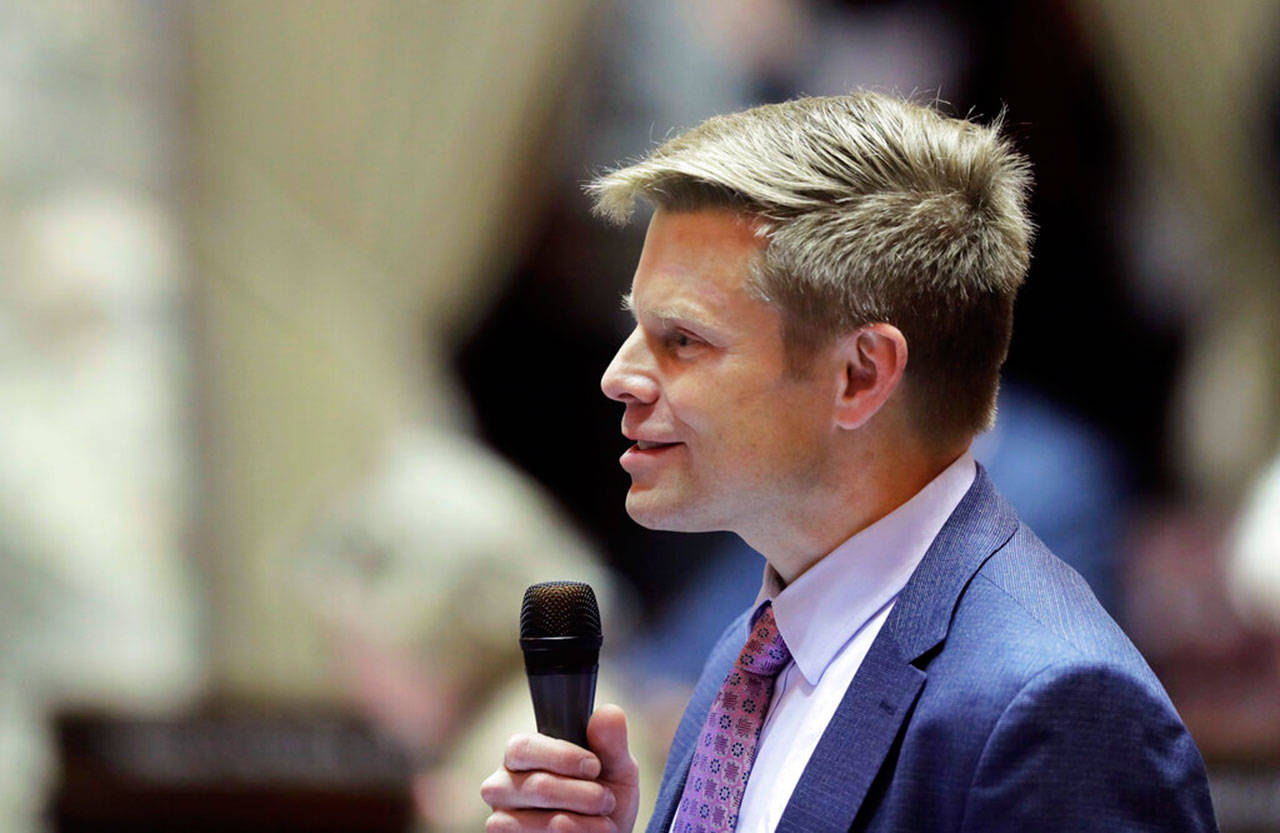By The Herald Editorial Board
Measured against the Legislature’s last attempt to address how state lawmakers would respond to requests for public records, a bill drafted this session by state Sen. Jamie Pedersen, D-Seattle, makes welcomed moves toward legislative transparency.
Unfortunately, that wasn’t a high bar to clear.
Last year’s legislation, some will recall, was rushed to passage in less than 48 hours and would have largely exempted legislators from compliance with the state Public Records Act, the state law that ensures that public agencies and officials will release to the public upon request the documents regarding their decisions and actions on policy, budgets and more, records that rightfully belong to the people.
Public outcry last year, at least partially spurred on by a campaign of front-page editorials by several newspapers in the state, flooded Gov. Jay Inslee’s office with more than 19,000 phone calls and emails successfully urging his veto of the ill-considered bill.
Pedersen’s bill, SB 5784, which is scheduled for its first public hearing at 8 a.m. Feb. 13, before the Senate committee on state government, broadens the range of documents that state lawmakers would be required to release, in particular, emails and other communications between lawmakers and those outside government, significantly, lobbyists.
The bill also would not attempt, as its predecessor did, to shield older documents, those created before the legislation takes effect.
And the legislation, unlike last year’s attempt, would allow for state courts, starting with Thurston County Superior Court, to review decisions regarding the withholding of requested documents.
Yet, at its core, SB 5784 still seeks to make a distinction between state lawmakers and nearly all other public officials and government agencies in defiance of the open government principals that the state’s citizens first established by initiative in 1972.
There’s an inherent threat in the bill should that distinction become law, because other public officials and agencies could then seek the same privilege for themselves, weakening the Public Records Act to the point of fecklessness.
Pedersen’s bill would shield from release to the public documents related to the “deliberative process,” such as drafts of bills and amendments; bills and amendments that weren’t introduced; and emails among legislators and staffers regarding legislation.
We’ve heard from several lawmakers regarding protections for such deliberations, concerned that transparency would chill those discussions at the cost of potentially effective legislation. We’re not convinced, however, that these deliberations require such coddling. On the contrary, the light of public scrutiny will help good ideas flourish and only cause bad ones to wither. Lawmakers who are worried about being unfairly tagged with a bad idea — or found (gasp!) negotiating a compromise with another lawmaker — need greater trust that their constituents understand the concept of a batting average.
The legislation also seeks to withhold investigative records, notes and witness statements regarding complaints in the Legislature of sexual and workplace harassment and would only make final reports of an investigation public. Again, this is a provision that is not available now to other agencies, in particular law enforcement, which — and only after an investigation is complete or information has been forwarded to prosecutors — are expected to release records related to the investigation upon request.
Make this distinction official and law enforcement agencies could seek it for themselves.
Regarding concerns for constituents’ emails to lawmakers — that sensitive personal information could be made public — we’ve noted many times before that the Public Records Act already outlines strong protections for such information, including the redaction of identifying and sensitive information from records prior to release.
A legislative solution this session may be the best outcome for lawmakers, the media and the public, as the state Supreme Court could make the final determination here.
The state high court will soon hear arguments in an appeal of a Thurston County Superior Court decision a year ago that ruled largely in favor of a coalition of newspapers and other media who sought the Public Records Act’s application to lawmakers. The court held that while the Legislature, House and Senate weren’t subject to the Public Record Act, state lawmakers and their individual officers were.
Should the court uphold the earlier ruling, lawmakers will have to abide by it. If it’s overturned, the press could, as one lawmaker pointed out to The Herald, find itself with legislation even less transparent than Pedersen’s bill.
We take Pedersen at his word that his bill is a good-faith effort to find a legislative resolution.
“The people of our state value both open government and effective government,” Pedersen said recently in a statement. “This bill attempts to strike a balance between those important principles.”
But Pedersen incorrectly frames the issue; you cannot balance open government and effective government. Open government — transparent government — is how you deliver effective government.
Talk to us
> Give us your news tips.
> Send us a letter to the editor.
> More Herald contact information.

























